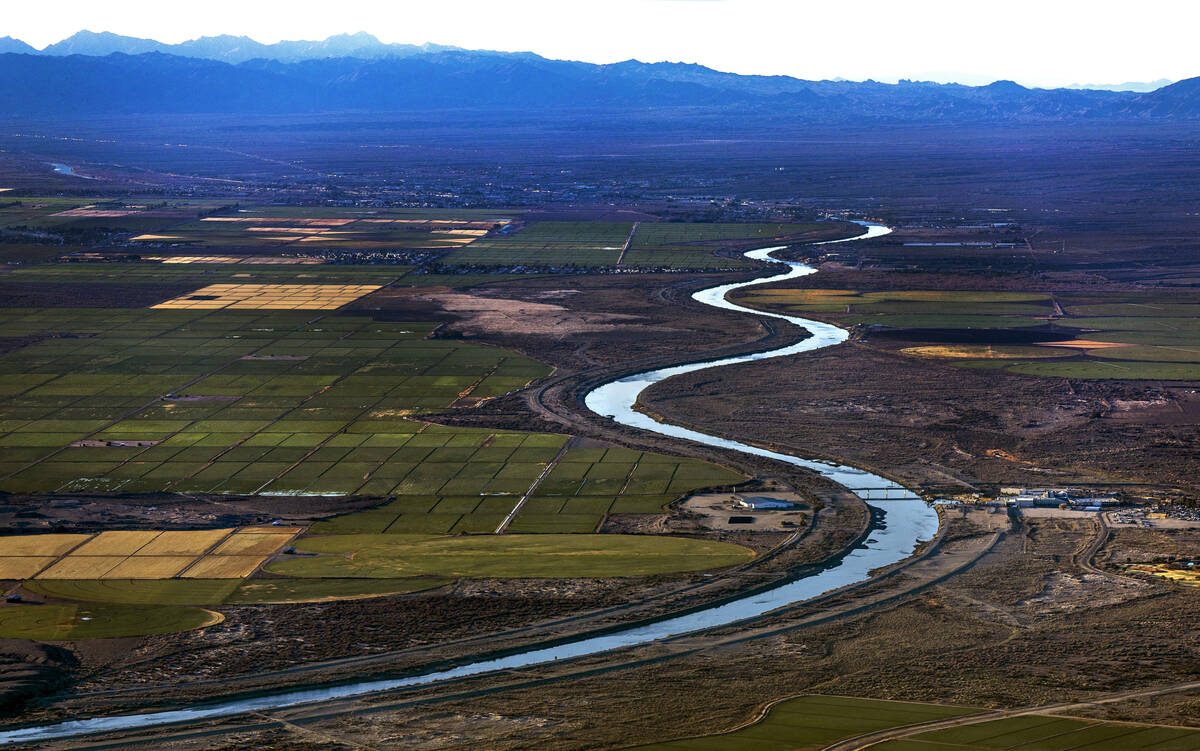How Nevada uses more than its tiny share of the Colorado River each year
Nevada gets less than a 2 percent cut from the Colorado River’s waters, but the state actually uses far more water than that each year, all while staying well within its century-old legal water rights.
It’s all thanks to an extensive water recycling program in the Las Vegas Valley and something called “return flow credits,” which allow the state to pull extra water out of Lake Mead for every gallon of wastewater treated and returned to the reservoir via the Las Vegas Wash.
“In any given year, we divert more from the Colorado River than we actually deplete from the river because nearly all of our water that is used indoors and hits a drain is returned back to Lake Mead,” said Colby Pellegrino, deputy general manager of resources for the Southern Nevada Water Authority.
Nevada’s claim to the tiniest share of the river dates back to when the states first divvied up the Colorado in 1922, when Clark County had fewer than 10,000 permanent residents. But as Southern Nevada started to look less like a train stop on the way to Los Angeles and more like a bustling city in an arid desert, stretching those scarce water supplies became incredibly important.
In 1975, Nevada received its first credit from the federal government for treated water returned to Lake Mead.
Under normal, non-shortage conditions, Nevada can pull up to 300,000 acre-feet of water from the river each year, or about 1.8 percent of the total allocation of the river and the smallest share among the seven states along the Colorado River basin.
Over the last three years, the actual amount of water Nevada has drawn from the river averaged roughly 475,000 acre-feet — nearly 60 percent higher than its legal allotment.
But since the region recycles nearly every drop of water from showers, faucets or toilets that goes down a drain, the amount of Colorado River water that Nevada actually consumed has remained well within its legal allotment. In 2022, Nevada consumed 223,000 acre-feet of water, according to the Bureau of Reclamation.
Pellegrino said that unlike other municipalities, Las Vegas’ indoor water recycling makes it so things like low-flush toilets and prioritizing shorter showers are essentially non-factors when it comes to saving water in Southern Nevada.
That has allowed the water authority and other water managers to focus almost exclusively on the thirstiest water consumers — specifically grass lawns, evaporative coolers and pools.
So go ahead and flush, Las Vegas.
A previous version of this story incorrectly identified the agency that provided information about the amount of water consumed in Nevada.
Contact Colton Lochhead at clochhead@reviewjournal.com. Follow @ColtonLochhead on Twitter.























